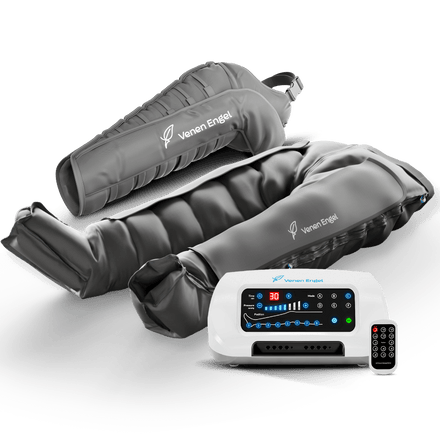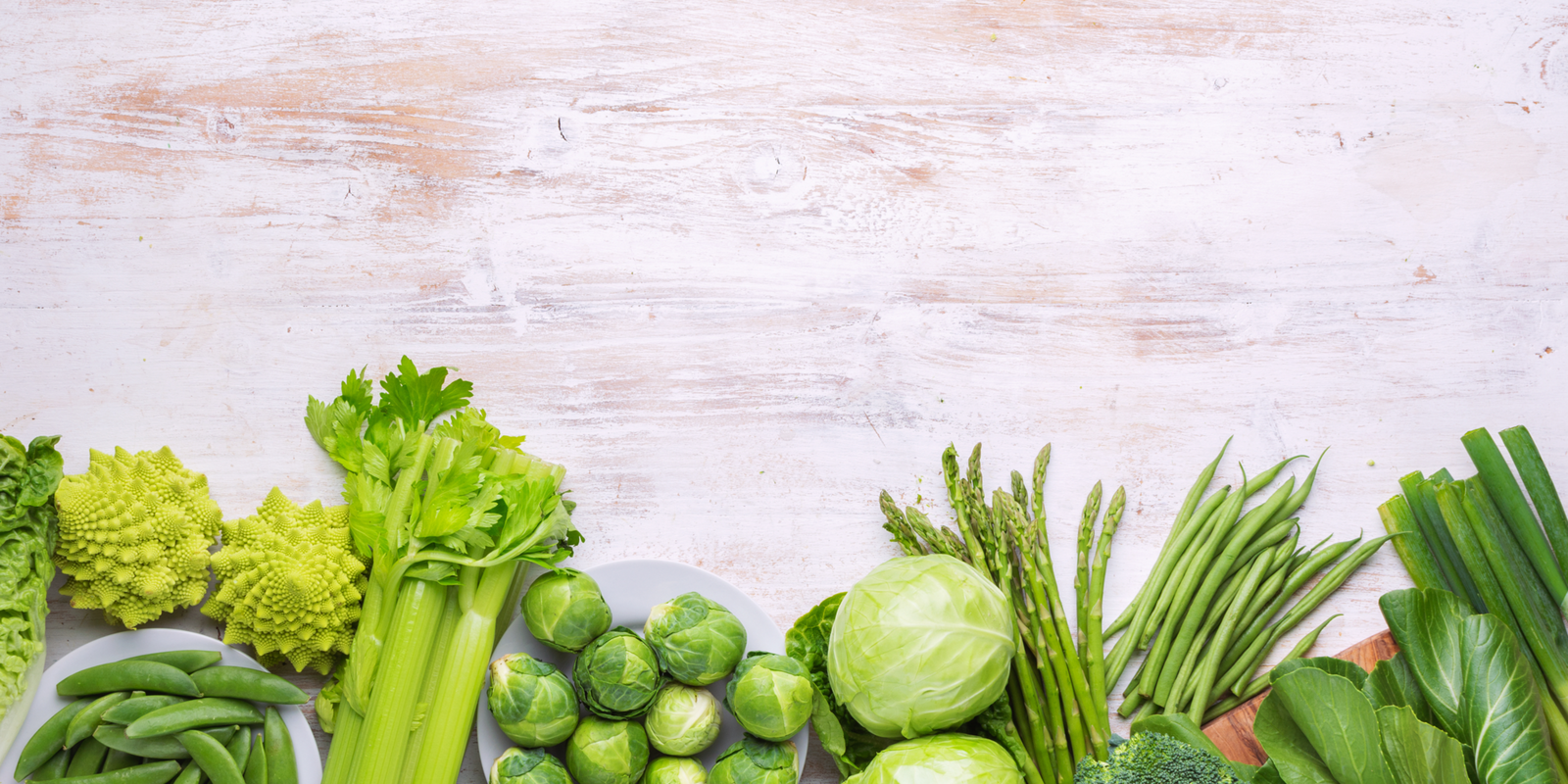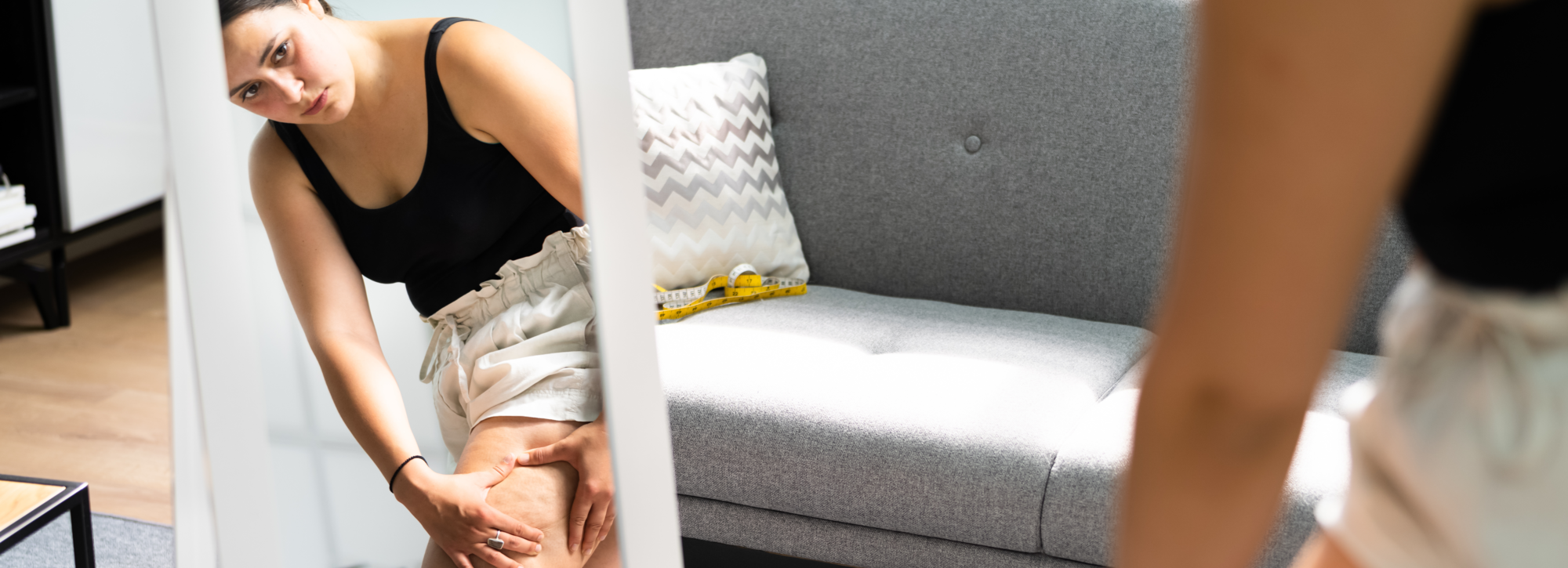
A balanced diet plays a crucial role in managing lipedema. It focuses on reducing inflammation and improving circulation. Therefore, anti-inflammatory foods are preferred for lipedema to alleviate symptoms.
In this article, we want to show you some foods that are helpful for lipedema. and can significantly reduce the pain. Furthermore, they also tell you what you should avoid for good reasons.
What is lipedema?
Lipodema is a chronic and usually progressive Fat distribution disorder that affects almost exclusively women. There is a disproportionate increase in subcutaneous (from Latin sub for 'under' and cutis for 'skin') Fat tissue on both sides, especially at the lower Extremities. Their exact cause is unknown, but there are some factors, such as genetic predisposition, hormonal imbalance, and a few more that can increase the risk of developing lipedema.
Difference from lymphedema
Nutrition for lipedema focuses on reducing inflammation and improving circulation. In contrast, for lymphedema it is about avoiding salty foods and reducing water retention. Therefore, anti-inflammatory foods are preferred for lipedema to alleviate symptoms.

Nutrition for Lipedema
Nutrition is not the trigger for lipedema, but those affected can, however, with a long-term dietary change, their Affects complaints and pain. Because the fat tissue thickened by lipedema continuously presses on the tissue, leading to complaints such as pain, feelings of tension, and circulatory disorders. Additional overweight increases this pressure, which worsens the symptoms and can lead to further water retention or edema. Moreover, the right diet can help reduce inflammation and improve overall well-being.

Lipedema: Foods That May Help
Fruits and Vegetables: Fresh fruits and vegetables are rich in antioxidants and anti-inflammatory nutrients that can help reduce inflammation. Particularly recommended are berries, citrus fruits, leafy greens, avocados, carrots, and red peppers.
Low-fat Proteins: Lean meats such as chicken, turkey, fish, and lean beef are good sources of protein that contain little fat. Plant-based proteins like beans, lentils, and tofu are also good options.
Fats: Omega-3 fatty acids, found in fatty fish such as salmon, mackerel, and sardines, as well as in flaxseeds, chia seeds, and walnuts, have anti-inflammatory properties and can help alleviate the symptoms of lipedema.
Whole grain products: Whole grain products like whole grain bread, whole grain pasta, brown rice, and oatmeal contain fiber that can promote digestion and stabilize blood sugar levels.
Water: Drinking enough water is important to keep the body hydrated and support lymph flow. The exact amount of your daily water needs depends greatly on your physical activity. It is important to listen to your thirst and avoid sugary drinks.


Lipedema: Foods to Avoid
Sugar and Sweets: Sugary foods and drinks can increase inflammation in the body. Therefore, try to avoid sweets, sodas, fruit juices, and other sugar-rich products.
Saturated Fats: Foods that are rich in saturated fatty acids, such as high-fat meat, fried foods, butter, and cheese, should be consumed in moderation as they can promote inflammation.
Alcohol: Alcohol can amplify the inflammatory response in the body and impair lymph flow. Therefore, reduce alcohol consumption or avoid it altogether to alleviate the symptoms of lipedema.
Heavily processed foods: Foods that are rich in additives, artificial flavors, and preservatives can promote inflammation and burden the metabolism. Try to avoid these foods and instead focus on fresh, unprocessed foods.

Final Remark
By focusing on a healthy, balanced diet and avoiding certain foods, you can help alleviate the symptoms of lipedema and improve your quality of life. You can also seek help from nutritionists to create a personalized nutrition plan that takes your needs into account.











